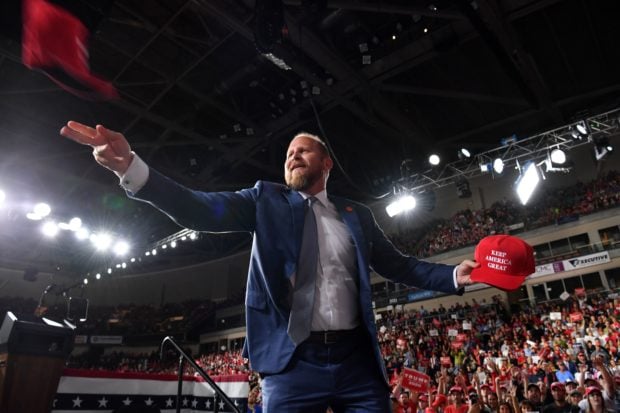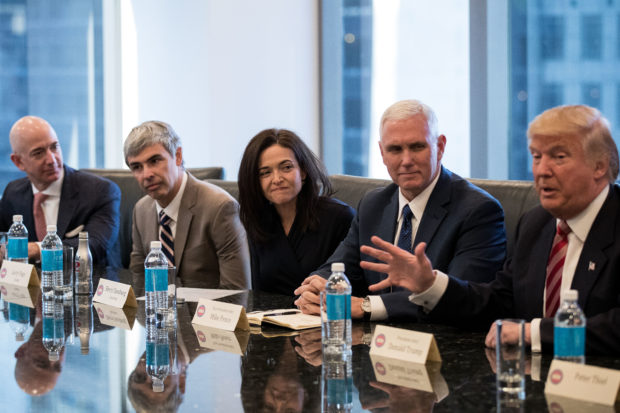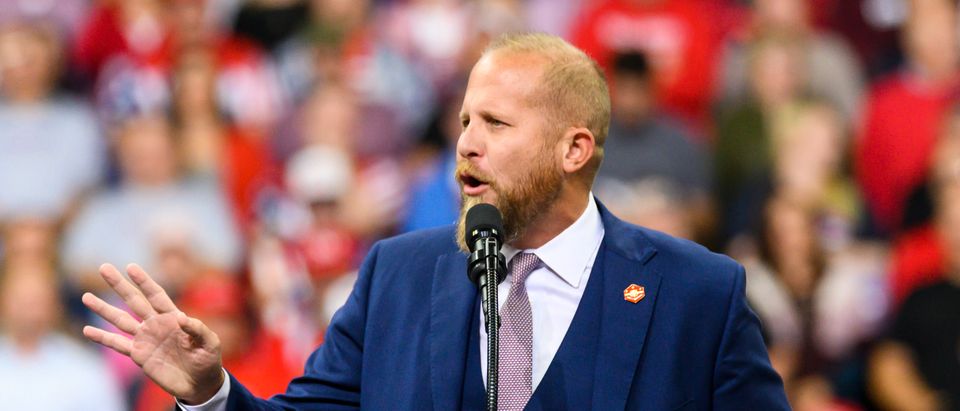Trump campaign manager Brad Parscale accused Google and Twitter of engaging in “voter suppression” Thursday by restricting political advertisements on their platforms.
Twitter recently announced that they are banning political advertisements entirely, while Google will no longer allow campaigns to engage in political advertisements that target specific voters. Parscale suggested that the policies are specifically intended to harm the Trump campaign during a background briefing with reporters in Rosslyn, VA on Thursday morning. (RELATED: Twitter To Ban Political Advertising)
“Jared [Kushner] and I knew two days [after the election] that they’re going to start systematically trying to destroy everything we did in 2016,” Parscale said in response to a question about digital strategy from the Daily Caller.
“They have a culture within their companies and a bias within their companies — I don’t even think this is as much for the general public as it is to keep control of their own companies, because they’re places that are so liberal, they’re so progressive, that they even think giving us an opportunity to talk to our voters is something they need to stop because it’s the virtuous, righteous thing to do at this point,” Parscale argued.
Parscale noted with respect to Google’s ban on targeted ads that the voters “opt-in” to receiving advertisements from the campaign by indicating online they like President Donald Trump or are interested in receiving materials.

Brad Parscale, campaign manager for US President Donald Trump, thows caps to the audience during a “Keep America Great” campaign rally at the SNHU Arena in Manchester, New Hampshire, on August 15, 2019. (Photo by NICHOLAS KAMM/AFP via Getty Images)
“What Google has just done would be no different than the phone companies taking our phone lists and saying, ‘you can’t call your voters,'” he said. “That is a complete voter suppression activity.”
However, Parscale claimed that tech companies are “a day late and a dollar short” in their alleged attempts to stop Trump, explaining that the campaign also has a traditional grassroots effort made up of collecting phone numbers, knocking on doors, and mobilizing volunteers. According to campaign officials, the Trump campaign and the Republican National Committee (RNC) have 2 million active volunteers at their disposal for the 2020 race.
Google did not respond directly to Parscale’s claims of voter suppression when reached for comment, but pointed out that they have not banned political advertisements entirely, a direct contrast to Twitter’s new policies.
“Digital advertising has an important role to play in the democratic process, and it comes with important responsibilities,” a Google spokesperson told the Daily Caller. “We know that political campaign strategists on both sides of the aisle have raised concerns about how our changes may alter their targeting strategies, but we believe the balance we have struck — allowing political ads to remain on our platforms while limiting narrow targeting that can reduce the visibility of ads and trust in electoral processes — is the right one.”
The Democratic National Committee (DNC), Democratic Senatorial Campaign Committee (DSCC) and Democratic Congressional Campaign Committee (DCCC) notably slammed Google in November, accusing the company of addressing the wrong issue by banning targeted ads. The organizations instead urging Google to target and remove ads that contain misinformation or false content. (RELATED: Trump 2020 Team Has Massive Plan That Relies On 2016 Victory)

NEW YORK, NY – DECEMBER 14: (L to R) Jeff Bezos, chief executive officer of Amazon, Larry Page, chief executive officer of Alphabet Inc. (parent company of Google), Sheryl Sandberg, chief operating officer of Facebook, Vice President-elect Mike Pence listen as President-elect Donald Trump speaks during a meeting of technology executives at Trump Tower, December 14, 2016 in New York City. (Photo by Drew Angerer/Getty Images)
“We stand in full support of tech platforms removing demonstrably false content and instituting better transparency standards. That approach combats the spread of disinformation without harming civic engagement or limiting the ability of campaigns to connect directly with voters,” the Democratic organizations said. “Tech companies should not reduce the power of the grassroots just because it is easier than addressing abuse on their platforms.”
Parscale hit on the fact that the Trump campaign will not be the only political organization affected by the new tech policies, stating that he believes Democratic ire will force Twitter and Google to reverse course.
“I think long-term they’re going to reverse on this because not only are they hurting us, they are hurting the Bernie Sanders’ of the world and those on the other side who need to talk to their people across the country, and this is just a deep state, establishment activity to make sure establishment candidates have the biggest voice,” he said.
Twitter did not respond to a request for comment in time for publication.
UPDATE (4:05 pm):
A Twitter spokesperson provided the following comment to the Daily Caller following publication of this article:
“I’d point you to Jack’s Tweets on political ads that underscore Twitter’s belief that reach should be earned, not bought. We enforce the Twitter Rules dispassionately and equally for all users, regardless of their background or political affiliation. We are constantly working to improve our systems and will continue to be transparent in our efforts. In fact, just this week we released our Year on Twitter data and the top politician worldwide is President Trump.”


